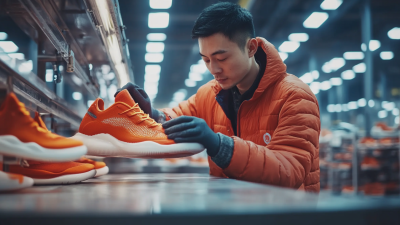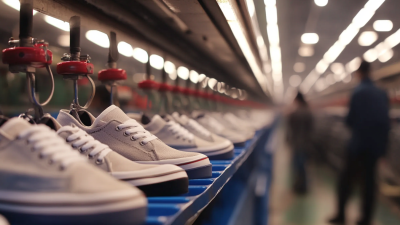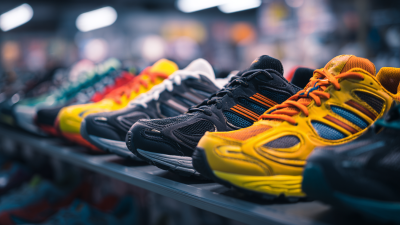
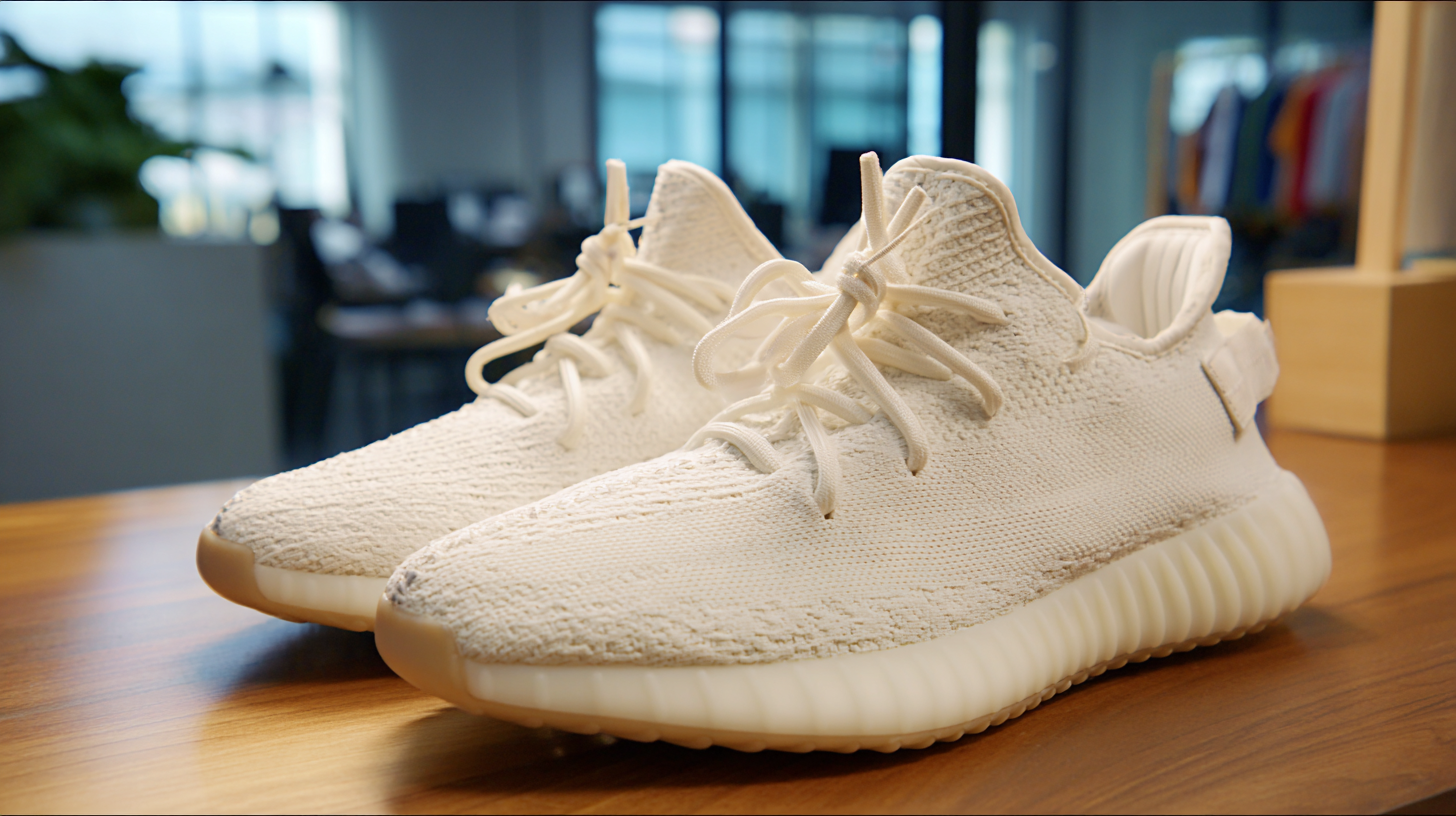 In recent years, the global fashion industry has witnessed a significant shift towards sustainability, with Korean OEM sneaker factories at the forefront of this movement. As consumers increasingly demand environmentally friendly products, these factories have adapted their manufacturing processes to minimize waste and reduce carbon footprints. According to a report by McKinsey & Company, sustainable fashion could represent a market worth over $400 billion by 2030, highlighting the urgency for brands to align with eco-friendly practices.
In recent years, the global fashion industry has witnessed a significant shift towards sustainability, with Korean OEM sneaker factories at the forefront of this movement. As consumers increasingly demand environmentally friendly products, these factories have adapted their manufacturing processes to minimize waste and reduce carbon footprints. According to a report by McKinsey & Company, sustainable fashion could represent a market worth over $400 billion by 2030, highlighting the urgency for brands to align with eco-friendly practices.
Korean OEM sneaker factories have leveraged advanced technologies and ethical sourcing, enhancing their capacity to produce high-quality sneakers while adhering to sustainable standards. This evolution not only caters to the growing consumer preference for sustainable options but also establishes Korean manufacturers as key players in the global market. With projections indicating that sustainable products will dominate fashion trends in the coming years, the impact of Korean OEM sneaker factories on the industry is poised to expand dramatically.
The evolution of sustainable practices in Korean sneaker manufacturing has gained significant momentum in recent years. Many factories are transitioning towards eco-friendly materials and processes to keep up with the rising consumer demand for sustainable fashion. This shift is characterized by the adoption of organic and recycled materials, reduced carbon footprints, and a focus on ethical labor practices. As a result, these factories are not only enhancing their production methods but also contributing to a more responsible fashion industry.
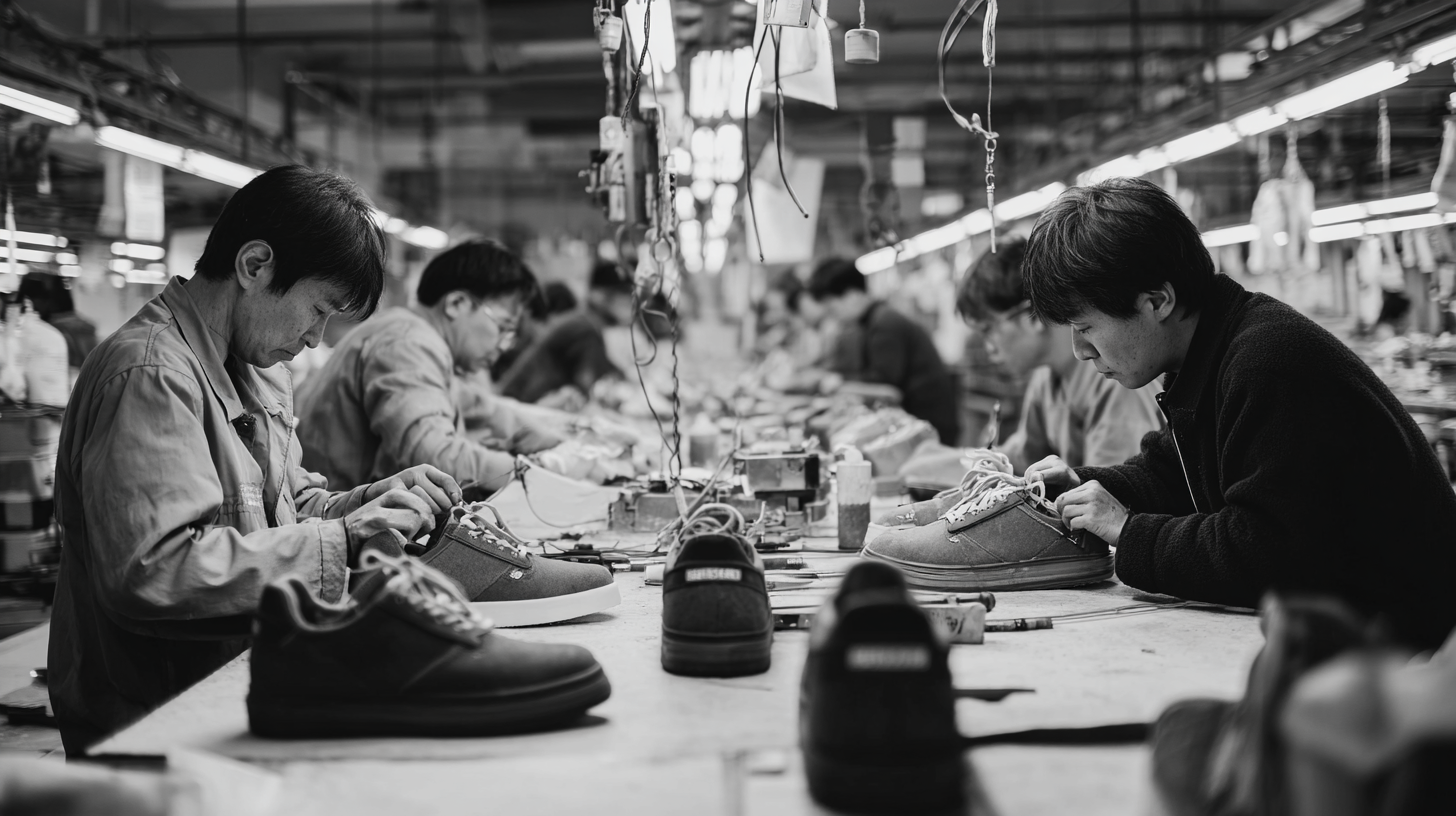
When considering sustainable sneaker options, consumers should look for certifications such as Fair Trade or Global Organic Textile Standard (GOTS). These labels ensure that the products are made with respect for people and the planet. Additionally, opting for brands that offer transparency about their sourcing and manufacturing processes can lead to more informed purchases.
Another essential tip for promoting sustainability in sneaker choices is to support brands that implement take-back programs or offer repair services. This not only extends the life cycle of the footwear but also reduces waste in landfills. By embracing these practices, consumers can play an active role in fostering a sustainable fashion ecosystem.
The rise of sustainable Korean OEM sneaker factories marks a significant shift in the fashion industry, driven by key innovations and technologies that prioritize eco-friendly production. Advanced materials such as biodegradable polymers and recycled textiles are at the forefront of this transformation. These materials not only reduce waste but also diminish the reliance on virgin resources, showcasing a commitment to circular fashion. Factories are increasingly adopting techniques that minimize water usage and energy consumption, such as closed-loop water recycling systems and solar energy installations, thereby lowering their carbon footprint.
In addition to materials, digital technologies play an essential role in enhancing production efficiency and sustainability. Innovations like 3D printing and AI-driven design software allow for precise manufacturing, reducing excess material and ensuring that each sneaker is crafted with minimal waste. Furthermore, the integration of supply chain transparency tools enables consumers to trace the sustainable practices employed in the production process, fostering a deeper connection between eco-conscious brands and their customers. As these sustainable practices gain traction, Korean OEM sneaker factories not only benefit the environment but also set a precedent for responsible manufacturing in the global fashion landscape.
The emergence of sustainable Korean OEM sneaker factories is not merely a trend but a pivotal shift in the fashion industry that increasingly emphasizes responsible production. Local communities play an integral role in this transformation, as they provide the workforce and foster an environment conducive to sustainable practices. According to a report by the International Labour Organization, regions supporting sustainable initiatives have seen a 15% increase in local employment rates. This phenomenon illustrates how grassroots movements can directly benefit a community while simultaneously addressing environmental concerns.
Moreover, local communities are instrumental in sourcing eco-friendly materials and promoting ethical labor practices. Research from the Sustainable Apparel Coalition indicates that brands collaborating with community-led factories report a 25% reduction in their carbon footprint. These factories not only adhere to sustainable production methods but also engage local artisans, integrating traditional craftsmanship with modern eco-friendly techniques. Such synergy not only preserves cultural heritage but also empowers local economies, fostering long-term sustainability in the fashion sector. As this movement grows, the relationship between sustainable factories and their communities will undoubtedly shape the future of fashion, making it more inclusive and environmentally responsible.
The rise of sustainable OEM sneaker factories in Korea is significantly reshaping global fashion trends and consumer behavior. As eco-consciousness grows among consumers, brands are increasingly prioritizing sustainability in their product lines. Korean manufacturers, known for their advanced technology and efficient production processes, are leading the charge by adopting environmentally-friendly practices, from sourcing materials to minimizing waste. This shift not only appeals to a demographic that values ethical consumption but also sets a benchmark for brands worldwide, compelling them to consider their supply chain impacts.
Furthermore, the influence of these sustainable practices extends beyond production to affect consumer behaviors. Shoppers are now more informed and engaged, demanding transparency and accountability from brands. This has encouraged a cultural shift where consumers actively seek out sustainable sneaker options that align with their values. The trend has resulted in a growing market for eco-friendly footwear, pushing traditional brands to innovate and adapt to meet these changing expectations. As a result, sustainability is becoming a pivotal factor in purchasing decisions, marking a significant evolution in the fashion landscape driven by consumer activism.
This chart illustrates the growing trend towards sustainability in the sneaker industry, highlighting consumer preferences and the rise of eco-friendly practices among manufacturers over the past five years.
 The rise of sustainable OEM sneaker factories in South Korea brings both
challenges and opportunities
for the fashion industry. As brands increasingly commit to eco-friendly practices, the demand for sustainable sneakers
has surged. However, manufacturers face hurdles such as higher production costs and the need for
innovative materials that align with sustainability goals. Transitioning from traditional practices to eco-conscious
methods can require significant investment in new technologies and training for workers, which may deter some factories
from making the switch.
The rise of sustainable OEM sneaker factories in South Korea brings both
challenges and opportunities
for the fashion industry. As brands increasingly commit to eco-friendly practices, the demand for sustainable sneakers
has surged. However, manufacturers face hurdles such as higher production costs and the need for
innovative materials that align with sustainability goals. Transitioning from traditional practices to eco-conscious
methods can require significant investment in new technologies and training for workers, which may deter some factories
from making the switch.
On the other hand, this shift presents significant opportunities for companies willing to innovate. By focusing on
sustainable practices, OEM factories can position themselves as
leaders in the growing green market, attracting brands that prioritize environmental responsibility. Collaborations with
designers who emphasize sustainable aesthetics can lead to unique product offerings, enhancing brand loyalty among consumers. As the global market increasingly values
transparency and sustainability, factories that adapt effectively can not only survive but thrive
in this evolving landscape.
